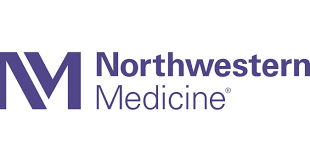Editor's Note Surgical care can be influenced if a patient has high blood pressure, including for preoperative assessment, intraoperative monitoring and to prevent postoperative complications such as heart and kidney injury, stroke, and death. An overview of updated blood pressure guidance updates to the 2017 Blood Pressure Guidelines released by…

Editor's Note Pairing short, human-led preoperative videos with structured postoperative texting streamlines workflows without sacrificing clinical touch at ambulatory surgery centers (ASCs), said Austin Cheng, CEO of Gramercy Surgery Center in New York City, and Tracy Hoeft-Hoffman, MSN, MBA, RN, CASC, administrator of Heartland Surgery Center in Nebraska, at the…

Volunteering is, at its core, about giving back. Yet many volunteer opportunities also create pathways to elevate one’s career and professional identity. At the American Board of Perianesthesia Nursing Certification, Inc (ABPANC), nurse volunteers grow both personally and professionally, gaining new knowledge, forming connections, and finding renewed purpose and emotional…

Editor's Note Hospitals adopting perioperative patient ambassadors are seeing major gains in surgical communication, patient trust, and satisfaction, AORN August 18 reports. An EIN Presswire release on September 30 also highlights AORN’s call for hospitals to formalize the patient ambassador role as part of the surgical team. AORN notes that…

Editor's Note Remote perioperative monitoring (RPM) accelerates recovery and reduces complications following major cancer surgery, according to a randomized trial published on August 28 by npj Digital Medicine and co-authored by researchers at the University of Miami Miller School of Medicine. The study enrolled 293 patients undergoing major abdominal or…

Editor's Note Colorectal tumors once considered inoperable are now routinely treated with curative surgery, thanks to advances in multimodality therapy and complex resection techniques, Mayo Clinic September 16 reports. Decades ago, cancers invading the sacrum, pelvic organs, or major blood vessels were often deemed unresectable, leaving patients with only palliative…

Editor's Note Consumer wearables can help detect surgical complications in children days before formal diagnosis, according to a July 9 article from the Feinberg School of Medicine at Northwestern Medicine. The article focuses on a study published in Science Advances and led by researchers at Northwestern University, Shirley Ryan AbilityLab,…
Editor's Note A recent article in AORN Journal underscores the need for vigilance and thorough documentation to manage postoperative mental status changes and prevent harm to both patients and staff. As detailed in the article, cognitive disturbances such as delirium and agitation can complicate recovery after surgery. Delirium is characterized…

Editor's Note Research shows using GLP-1 receptor agonists both before and after bariatric surgery is associated with greater total weight loss than surgery alone, according to a July 13 article in MedPage Today. The article focuses on a retrospective analysis of 568 patients presented at ENDO 2025, the annual meeting…

Editor's Note Although for-profit rehab hospitals have become highly profitable, a recent KFF Health News report highlights serious safety violations, including patient deaths due to carbon monoxide poisoning, medication errors, and falls. Published July 15, the article delves into recent data and inspections of these facilities, particularly those run by…